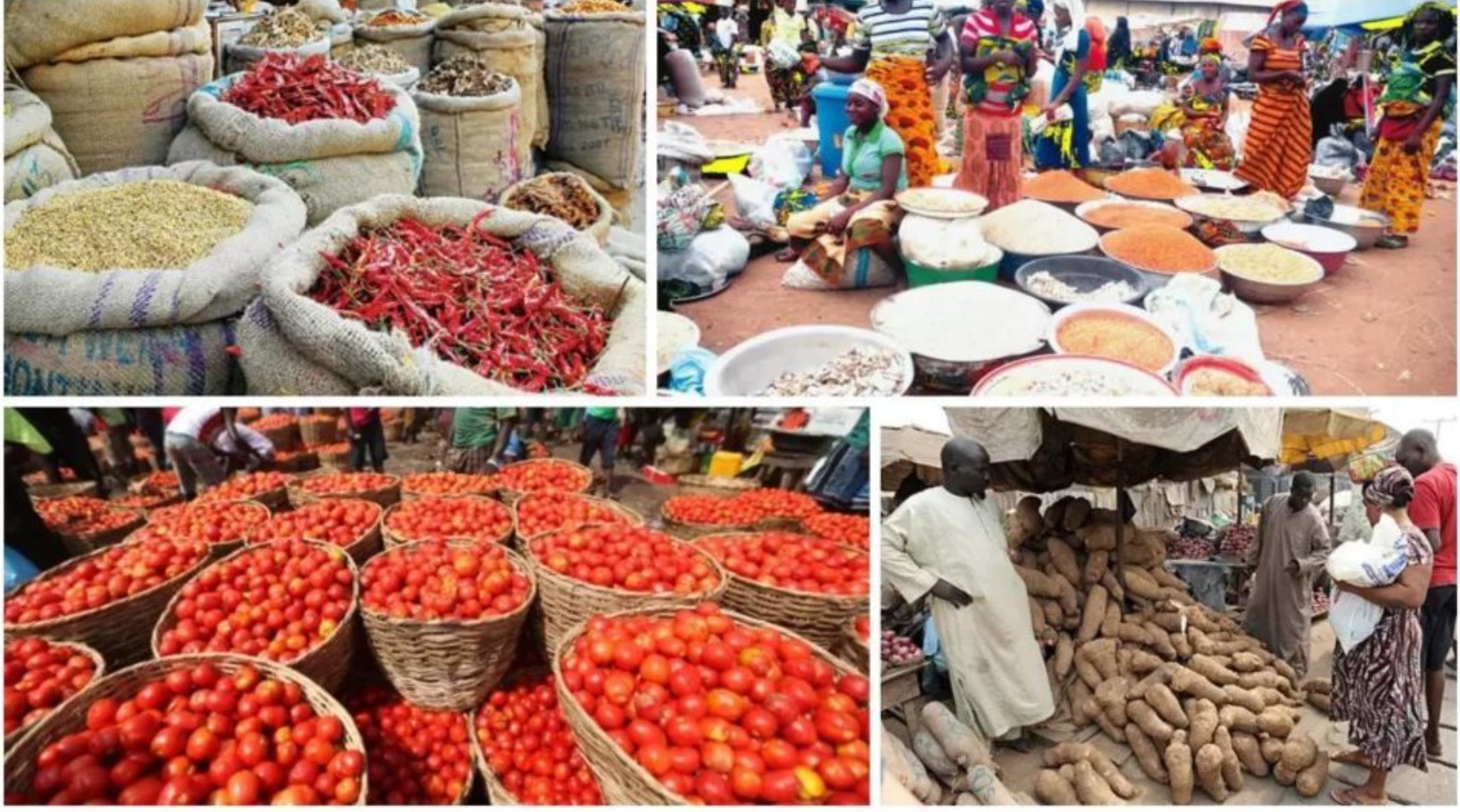An Economist, Ephraim Audu, has attributed insecurity as the primary cause of food inflation in Benue, calling on the Federal Government to urgently tackle the menace across the country.
Audu, the National President, Agricultural Agenda Nigeria Initiative (AANI), said this in an interview with the News Agency of Nigeria (NAN) in Abuja on Sunday.
He was reacting to the latest Inflation figures by the National Bureau of Statistics (NBS) for April.
The NBS had said the food inflation rate in April 2025 was 21.26 per cent on a year-on-year basis, with Benue recording the highest food inflation rate at 51.76 per cent on a year-on-year basis and 25.59 per cent on a month-on-month basis.
The report said on a month-on-month basis, the food inflation rate in April was 2.06 per cent, which decreased by 0.12 per cent compared to the 2.18 per cent recorded in March 2025.
The NBS said the decrease in food inflation was attributed to the reduction in average prices of items such as Maize (Corn) Flour, Wheat Grain, Okro Dried, Yam Flour, Soya Beans, Rice, Bambara beans, Brown Beans, etc
He, however, said he was not convinced that food inflation had dropped because the prices of food items were still on the increase.
Audu said it was sad to note that, even though Benue was the food basket of the nation, it recorded the highest level of food inflation.
He explained that less than three per cent of the population in Benue had access to civil service jobs, which meant over 80 per cent of the population were predominantly farmers.
“So now, their farms have been under attack. The insecurity will not allow these farmers a larger percentage of the populace, to have access to their farms, nor to produce.
“That has affected the dependency on their livelihoods, so why won’t there be high inflation of food items in Benue?”
The expert also gave another reason for food inflation to be the value chain, stating that there was a hyper increase in the price of Premium Motor Spirit (PMS) also known as fuel, and diesel due to the removal of subsidy.
Audu said that PMS and diesel were major determinants of the prices of goods and services.
“ Those guys are irrigation farmers, producing primarily products, and they use irrigation machines that use either petrol or diesel to pump their machines to work.
“So if Mr A buys petrol every day at the rate of N920 per litre, which he needs at least 10 litres a day to cultivate his farm, approximately N9,000. He uses N9,000 daily in a month. How much is that?
“So, now, if he is cultivating one or two hectares, how many tons is he expected to generate from those two hectares, certainly less than 16 tons.
“How much is the prevailing market price? So, that farmer has to factor in all the costs he has already incurred in the process of cultivating that product.
“So, that is why no professional analyst will tell you that there is a decline in the price of food.”
He also stated that the current headline inflation rate, which dropped to 23.71 per cent, as reported by the NBS, does not reflect the current realities on ground.
The economist said food, house rents, and transportation costs were still on the increase, saying that many Nigerians could barely afford to eat a proper meal daily.
He, therefore, called on the Federal Government to revitalise the refineries in the country and give licences for modular refineries across the comparative states.
According to him, if this is achieved, then the Dangote, government, and modular refineries will go into competition, and the price of PMS and diesel will drastically reduce.
Audu saidd that the Federal Government must prioritise both human and food security, so farmers could have access to their farms without fear.
He also recommended that the Federal Government invest, if possible, 60 per cent of the total budget for now on agriculture, which would help achieve food sufficiency and attract Foreign Direct Investment (FDIs) .
“This will lead to an increase in Gross Domestic Product (GDP) and Gross National Product. Consequently, foreign investors will open their portfolios, enhancing export opportunities, thereby, building and strengthening our exchange rates and foreign reserves.”
Audu added that the Federal Government should implement price regulations to prevent hoarding and price inflation.
He said, as a matter of urgency, the Federal Government must address the issues in the power sector, saying that without power, “all that we have mentioned would be inconsequential.”
Audu said the Federal Government should give single-digit intervention funds with a favourable moratorium for entrepreneurs, businesses, and farmers, while interfacing and supporting the value chain manufacturers and processors.
He said that the government and private sector should increase workers’ salaries to match the increasing costs of goods, services, and transportation, noting that the purchasing power of Nigerians is weak. (NAN)





